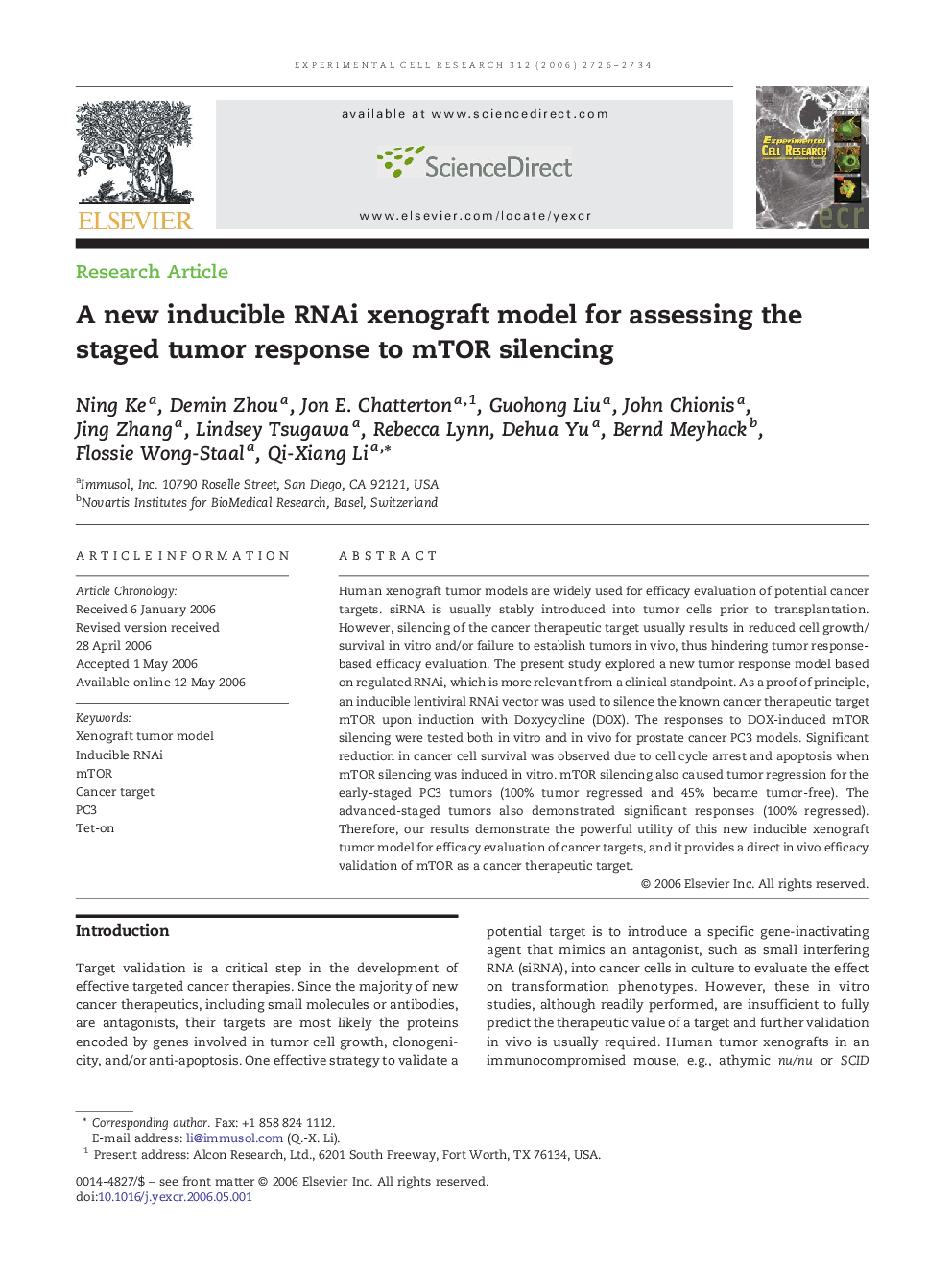| Article ID | Journal | Published Year | Pages | File Type |
|---|---|---|---|---|
| 2132870 | Experimental Cell Research | 2006 | 9 Pages |
Human xenograft tumor models are widely used for efficacy evaluation of potential cancer targets. siRNA is usually stably introduced into tumor cells prior to transplantation. However, silencing of the cancer therapeutic target usually results in reduced cell growth/survival in vitro and/or failure to establish tumors in vivo, thus hindering tumor response-based efficacy evaluation. The present study explored a new tumor response model based on regulated RNAi, which is more relevant from a clinical standpoint. As a proof of principle, an inducible lentiviral RNAi vector was used to silence the known cancer therapeutic target mTOR upon induction with Doxycycline (DOX). The responses to DOX-induced mTOR silencing were tested both in vitro and in vivo for prostate cancer PC3 models. Significant reduction in cancer cell survival was observed due to cell cycle arrest and apoptosis when mTOR silencing was induced in vitro. mTOR silencing also caused tumor regression for the early-staged PC3 tumors (100% tumor regressed and 45% became tumor-free). The advanced-staged tumors also demonstrated significant responses (100% regressed). Therefore, our results demonstrate the powerful utility of this new inducible xenograft tumor model for efficacy evaluation of cancer targets, and it provides a direct in vivo efficacy validation of mTOR as a cancer therapeutic target.
